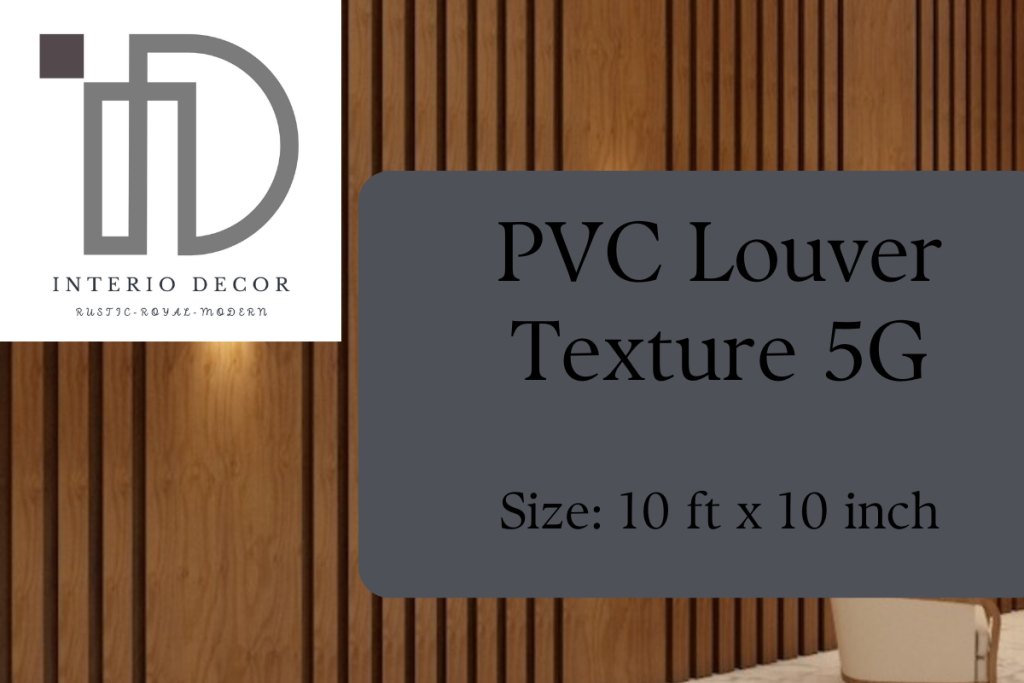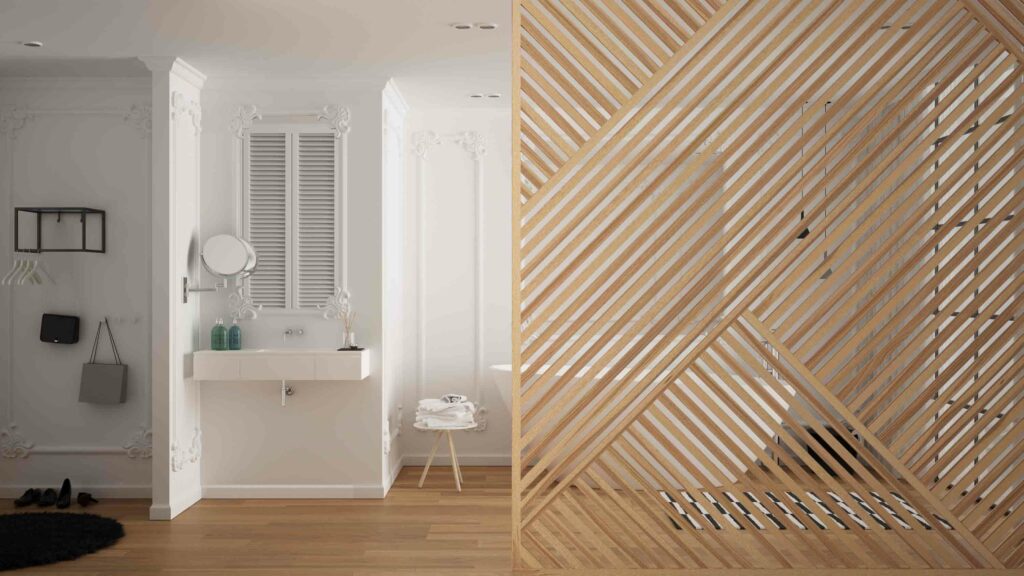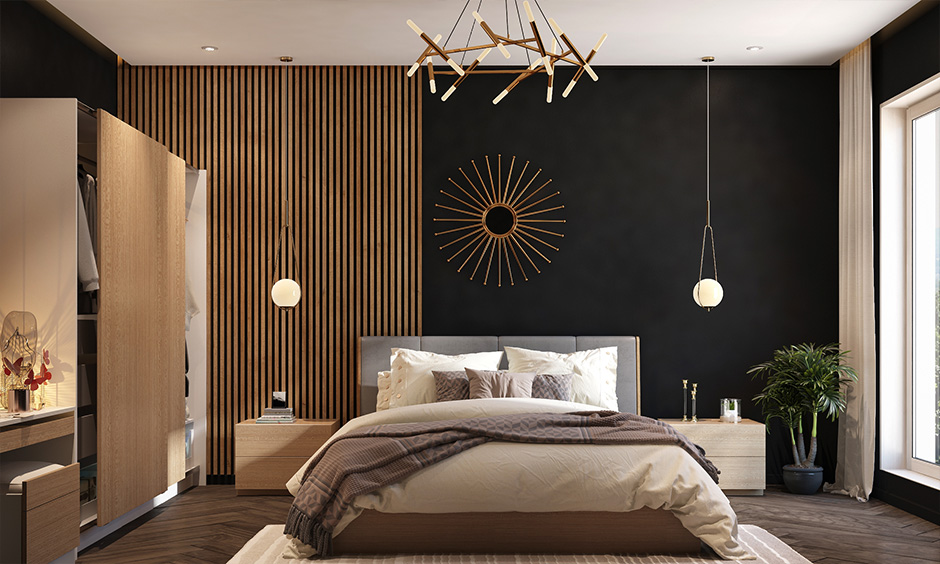In interior design and construction, PVC panels have emerged as a versatile solution offering both aesthetic appeal and functional benefits. As the demand for innovative building materials continues to rise, PVC panels have gained significant traction, especially in regions like Nepal where they’re increasingly utilized for various applications. In this comprehensive guide, we delve into the essence of PVC panels, exploring their uses, advantages, and disadvantages, shedding light on their suitability for diverse projects.
What are PVC Panels?
Definition and Composition
PVC, or Polyvinyl Chloride, panels are synthetic materials made from a combination of polyvinyl chloride resin, additives, and stabilizers. These panels typically come in various sizes and thicknesses, providing flexibility for different applications. They are manufactured through an extrusion process, resulting in lightweight yet durable panels that mimic the appearance of traditional building materials like wood, marble, or ceramic.
Applications of PVC Panels in Nepal
In Nepal, PVC panels have extensive use in residential and commercial settings. From enhancing the aesthetics of interiors to providing functional solutions for walls, ceilings, and flooring, PVC panels have become an integral part of modern construction practices. Common applications include:
Interior Decoration: PVC panels serve as decorative elements for walls and ceilings, adding texture, colour, and style to living spaces, offices, hotels, and restaurants across Nepal.
Hygienic Surfaces: Due to their non-porous nature, PVC panels are ideal for environments where hygiene is paramount, such as kitchens, bathrooms, hospitals, and food processing facilities.
Waterproofing Solutions: PVC panels offer excellent resistance to moisture, making them suitable for areas prone to water exposure, including basements, bathrooms, and outdoor installations.

Advantages of PVC Panels
1. Cost-Effective Solution
PVC panels present a cost-effective alternative to traditional building materials like wood, stone, or ceramic tiles. They are relatively inexpensive to manufacture, purchase, and install, making them accessible to many consumers and businesses in Nepal.
2. Easy Installation
One of the most significant advantages of PVC panels is their ease of installation. Unlike cumbersome materials that require specialized tools and skills, PVC panels can be easily cut, trimmed, and installed using basic tools, reducing labour costs and installation time.
3. Low Maintenance
PVC panels are inherently low maintenance, requiring minimal upkeep to retain their appearance and functionality. They can be easily cleaned using mild detergents and water, eliminating the need for costly cleaning agents or specialized maintenance procedures.
4. Durability
Despite their lightweight nature, PVC panels are surprisingly durable and resilient. They are resistant to scratches, dents, and corrosion, ensuring long-term performance and longevity in various environments, including high-traffic areas and harsh climates.
5. Versatility in Design
PVC panels offer unparalleled versatility in design, allowing for endless customization options to suit diverse aesthetic preferences and architectural styles. Whether replicating the look of natural materials or showcasing contemporary patterns and textures, PVC panels provide endless design possibilities.
Disadvantages of PVC Panels
1. Environmental Concerns
While PVC panels offer numerous benefits, they are not without their drawbacks. One of the primary concerns surrounding PVC panels is their environmental impact. The production and disposal of PVC materials can release harmful chemicals and toxins into the environment, contributing to pollution and ecological degradation.
2. Limited Thermal Insulation
Compared to other building materials like wood or insulation foam, PVC panels offer limited thermal insulation properties. While they can help improve energy efficiency to some extent, they may not provide sufficient insulation in extreme climates, leading to increased heating or cooling costs.
3. Susceptibility to Discoloration
PVC panels may be susceptible to discolouration over time, especially when exposed to prolonged sunlight or harsh chemicals. While modern manufacturing techniques have improved the UV stability and colour retention of PVC panels, discolouration remains a potential issue in certain environments.
4. Vulnerability to Damage
Despite their durability, PVC panels are not entirely immune to damage. They may be prone to cracking, warping, or deformation under extreme conditions or heavy impact. Proper installation and maintenance are essential to mitigate the risk of damage and ensure the longevity of PVC panels.

Wrapping Up
In summary, PVC panels offer a compelling blend of affordability, versatility, and durability, making them a popular choice for interior decoration and construction projects in Nepal and beyond. While they come with certain disadvantages, such as environmental concerns and limited insulation properties, the advantages they offer outweigh the drawbacks for many consumers and businesses.
As the construction industry continues to evolve, PVC panels are likely to remain a staple solution for enhancing the aesthetics and functionality of interior spaces, contributing to the growth and innovation of architectural design in Nepal and around the world. Whether used for residential renovations, commercial developments, or industrial applications, PVC panels stand as a testament to the ingenuity and adaptability of modern building materials.
In conclusion, PVC panels serve as a testament to the innovation and adaptability of modern building materials, offering a balance of functionality, aesthetics, and sustainability for diverse construction projects in Nepal and beyond. As the demand for efficient, cost-effective solutions continues to grow, PVC panels are poised to play an increasingly integral role in shaping the future of interior design and construction practices worldwide.
By understanding the uses, advantages, and disadvantages of PVC panels, consumers and professionals alike can make informed decisions when incorporating these versatile materials into their projects, ensuring optimal results and long-term satisfaction. As the construction industry evolves, PVC panels are set to remain a versatile and indispensable solution for enhancing the beauty and functionality of interior spaces across Nepal and beyond.
Contact Us for Your PVC Panel Needs!
If you are considering using PVC panels in your home decoration or construction projects, feel free to reach out to us at Phone: 9808352223, 9761610886, Email: [email protected] and our contact us Section. Our team of experts can provide guidance, assistance, and high-quality PVC panel solutions tailored to your specific requirements. Let us help you transform your vision into reality with the versatility and durability of PVC panels.
Facebook Page: Interio Decor Pvt. Ltd.
Instagram: interio_decor.np

